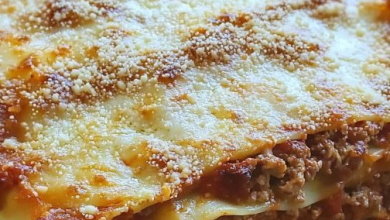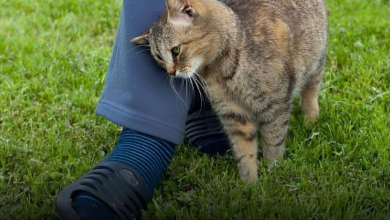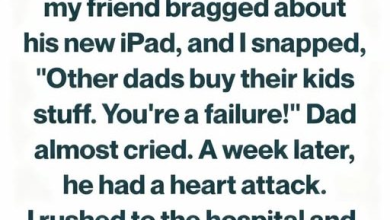At the zoo, chaos erupted as a gorilla suddenly went for a man in a wheelchair, seizing the chair’s handles and refusing to let go! The zookeepers tried to pull him away — but then the unimaginable happened.

To most people, the zoo was nothing more than a weekend escape — a place for laughter, photos, and popcorn.
But for Samuel Hayes, it had once meant everything.
For thirty years, he’d devoted his life to that place — feeding, cleaning, protecting, and quietly loving the animals who had become more like family than anything else.
Now in his seventies, retired and confined to a wheelchair after a back injury, Samuel still returned every Saturday. The younger staff greeted him with respect — the kind reserved for legends. He’d roll through the familiar paths, stop to watch the elephants, linger by the lions, and always, always end his route at the gorilla habitat.
That corner of the zoo held his heart. It was where he had raised Kira, a female gorilla rescued years ago from an illegal trafficking ring. When she arrived, she had been malnourished, terrified, and distrustful. Samuel had stayed by her side through it all — bottle-feeding her through sleepless nights, whispering softly through thunderstorms, and teaching her, slowly, that not all humans were cruel.
Their bond was unbreakable — but fragile too. When Samuel retired, zoo policy required that he cut off personal contact with the animals. He understood, but the rule didn’t stop his heart from returning. Every Saturday, he would wheel up to the fence, watching quietly from a distance, wondering if Kira still remembered the man who once slept beside her crate so she wouldn’t be alone.
Then came the autumn afternoon that changed everything.
The sky hung low and gray. The zoo was nearly empty. Samuel sat near the gorilla enclosure, a blanket tucked around his legs, humming softly as he watched the troop move.
From the far corner, Kira emerged. Older now — streaks of gray through her coat — but still unmistakable. She moved with a steady, deliberate grace until her eyes found Samuel’s.
He straightened, holding his breath. There was something in her stare — intent, recognition, something ancient and knowing. Step by step, she drew closer until her enormous hands touched the barrier between them.
“Hello, girl,” Samuel murmured. “It’s been a long time.”
The crowd began to gather. Phones rose. Parents pointed. And then, without warning, Kira reached through the bars and wrapped her fingers around the handles of his wheelchair.
The chair jerked forward. Gasps rippled through the onlookers. A woman screamed. Zookeepers sprinted toward them, shouting for security.
Samuel’s pulse hammered in his ears. He tried to pull back, but Kira’s strength was overwhelming. She made a deep, guttural sound — not a roar, not a snarl — something mournful, almost pleading. Then, with sudden power, she lifted.
The wheelchair struck the railing, and in an instant, Samuel was inside the enclosure.
Keepers froze, terrified to act. They knew one wrong move could be fatal — tranquilizers could take too long or trigger aggression. The senior keeper raised a hand and barked, “Hold your fire! Nobody move!”
Samuel sat motionless on the grass, face-to-face with Kira. She loomed above him, chest heaving, eyes burning with emotion.
Then — to everyone’s astonishment — she reached out and touched his cheek. Not with force, but with tenderness. A soft brush of her fingers, exactly as she had done years ago when she was a frightened infant seeking comfort.
Samuel’s voice trembled. “Kira… it’s me.”
A low hum rumbled from her chest as she pulled him into her arms — not crushing, but cradling. The wheelchair clattered to the side as she gently rocked him back and forth.
The world went still. The crowd stopped shouting. Even the children were silent. Only the wind whispered through the trees, and the steady sound of her breathing filled the air.
After a long, suspended moment, Kira loosened her hold. She studied his face, sighed, and — to everyone’s disbelief — reached behind him, took the wheelchair, and began to push.
Slowly, carefully, she guided him back toward the barrier.
Keepers rushed forward, shaking but ready. As they lifted Samuel to safety, Kira remained close, her hands gripping the fence as if unwilling to let him go.
The moment he was back on solid ground, the crowd erupted — gasps, applause, tears. Samuel was trembling, eyes red, but smiling in a way no one had seen in years.
Later, when questioned by staff, Samuel could barely find the words.
“She remembered,” he whispered. “After all this time… she remembered.”
That evening, the zoo administrators combed through old records. Many had never known the full story — how Samuel had bottle-fed Kira through the night, how he’d soothed her fevers, and sat beside her when she trembled in fear. She had been his first rescue — his proudest triumph.
And somehow, that connection had survived.
Through years of separation, through the dull ache of time, Kira had remembered the voice, the scent, the kindness of the man who once saved her.
The enclosure was closed for a week. New safety measures were installed. But the story spread far beyond the zoo’s gates — a tale of memory, love, and an impossible reunion between man and animal.
Samuel never missed another Saturday after that. Under careful supervision, he was permitted to visit again. He would wheel up to the reinforced glass, tap twice, and wait.
Every time, Kira would appear — pressing her hand to the glass, sitting quietly beside him.
No words. No spectacle. Just two old souls remembering a bond that time could not erase.
Visitors often asked who the man in the wheelchair was, and why the gorilla seemed so calm around him. The staff would smile and say,
“That’s Sam. And that’s Kira. They’ve known each other a long time.”
What happened that day wasn’t about instinct or chance — it was about memory. About a creature who once learned compassion from a man, and years later, returned that compassion in the only way she could: through recognition, and love.
For Samuel Hayes, it wasn’t just a reunion.
It was proof that kindness never disappears — it leaves a mark that not even time, or species, can erase.




